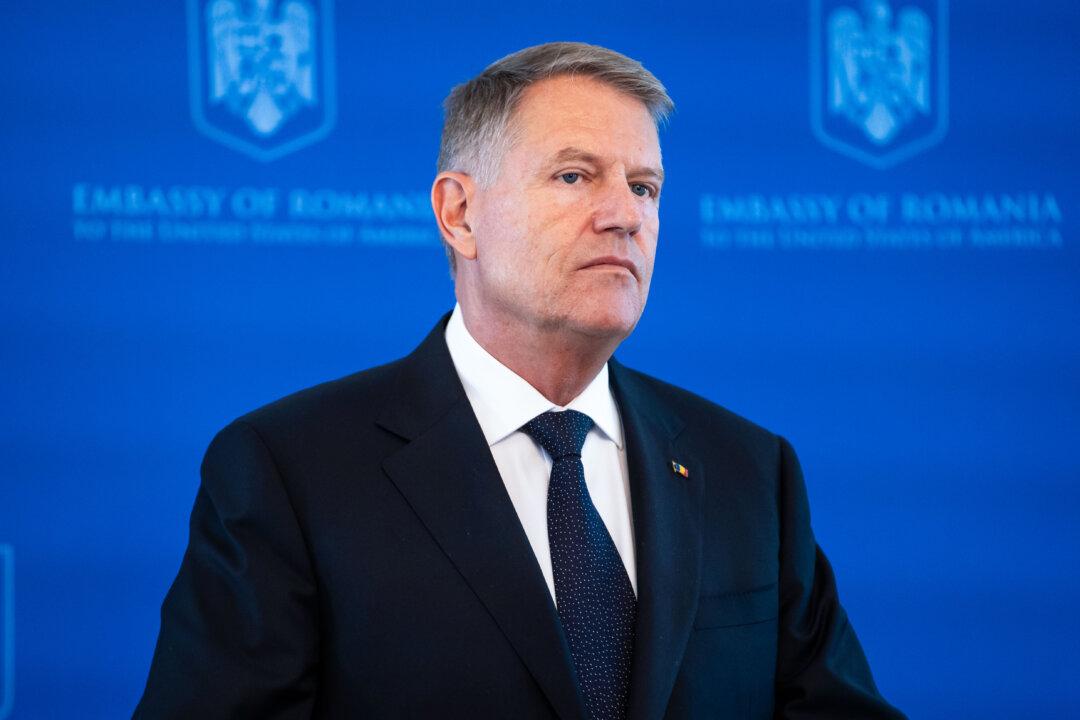Romanian President Klaus Iohannis said on Feb. 10 that he would resign ahead of plans by opposition parliamentary parties to impeach him.
Iohannis, 65, has served as president since 2014, completing the maximum of two five-year terms. Following accusations of Russian election interference, which the Kremlin denies, his presidency was extended in December 2024 after the Constitutional Court canceled the presidential election two days before the Dec. 8 runoff.





